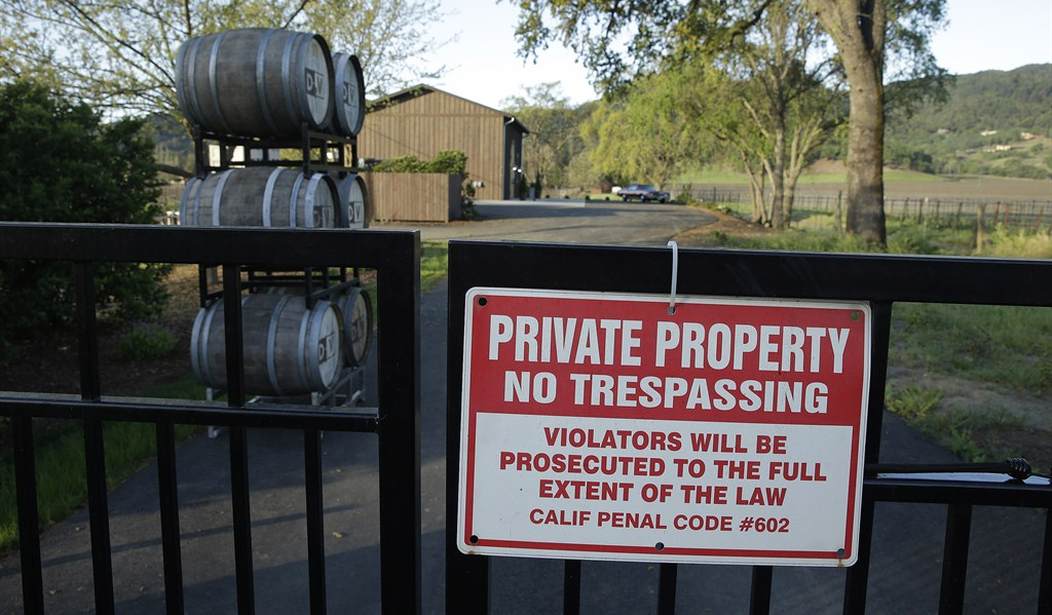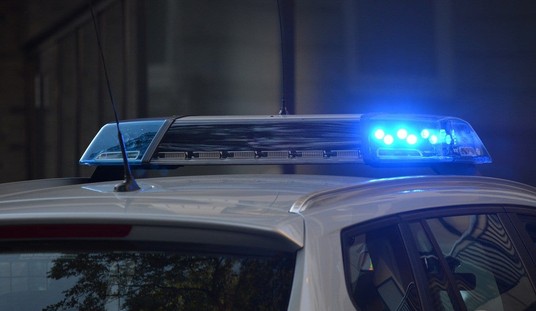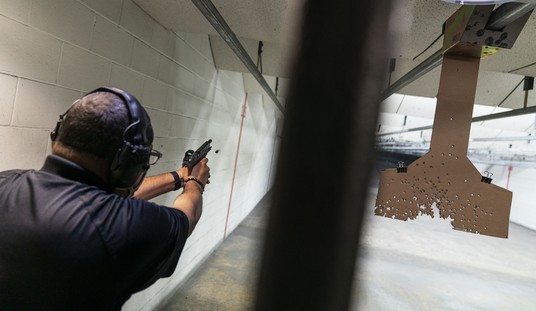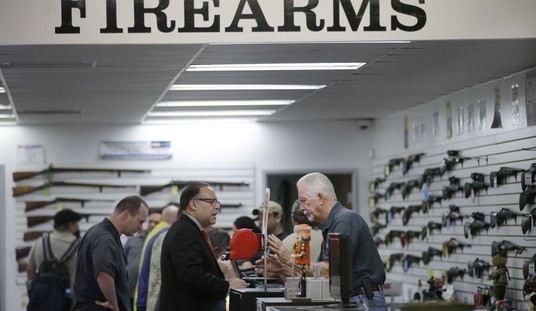The Fourth Amendment protects our right to be free from unreasonable searches and seizures, but thanks to a 100-year-old decision from the Supreme Court, there's a major loophole that completely eviscerates that right when it comes to rural Americans. Under the Supreme Court's "Open Field" doctrine, first announced in the Prohibition-era case Hester v. U.S., “the special protection accorded by the Fourth Amendment to the people in their ‘persons, houses, papers, and effects,’ does not extend to "the open fields."
In other words, while the feds (or local and state law enforcement) can't search your home without a warrant in most cases, and never without "reasonable suspicion" that a crime has been committed, they can wander onto your property at will and simply look for something to charge you with.
The Institute for Justice is using the courts to try to change that, including a case recently filed by Louisiana landowner, forester, wildlife biologist, and hunter Tom Manuel, who is suing the Louisiana Department of Wildlife and Fisheries for its repeated excursions onto Manuel's property. Back in early December, Manuel was hunting on his property when he noticed a strange truck parked about 250 yards past the gate to his farm. As he approached, he was greeted by a Louisiana Department of Wildlife and Fisheries officer who wanted to see Manuel's deer tags.
“I said, ‘Can I help you?’ and the game warden answered, ‘No. I’m just here to check you,’ Manuel recalls. “I didn’t like that, but he was cordial. I told him, ‘The public road stops at my gate, and I’d have appreciated if you waited there, but I’ll put my gun in my truck and then I’ll talk to you.’”
The wildlife officer asked for the rifle to unload the firearm, according to Manuel. “I’m on my own land, facing no warrant, charges, or accusations, but I’m with an armed guy I don’t know who wants my gun. Just me and him alone in the woods on my private property.”
Manuel declined the request: “The game warden said, ‘It just makes my job safer,’ but in that moment, it sure didn’t make me safer and it broke every safety measure I know to hand someone a loaded gun. He didn’t like my answer, but he backed off.”
Unchambering a round from the .270, Manuel placed the rifle in the Tundra’s passenger seat, muzzle pointed to the floorboard.
The LDWF officer then verified Manuel’s electronic deer tags and did not issue a citation. Check completed, Manuel asked for probable cause. The officer, per Manuel, responded, “The fact you’re hunting is all the probable cause I need.”
“One, there was no way he knew if I was hunting or not,” Manuel says. “Two, hunting is not illegal.”
Despite his concerns, Manuel continued with deer season and put the private property rights issue to rest. Three weeks later, it happened again.
The second time around, Manuel says two officers approached his brother, again on Manuel's private property, who once again asked several questions about the hunting activity. Manuel was informed by his brother about what was going on, so he drove to the spot on the farm where the officers had positioned themselves and had another disturbing conversation with the game wardens.
“I wanted to know why they were on my land. They came on Dec. 6; they came on Dec. 30; I’d just killed a buck earlier in the day; three different game wardens; and another surprise entrance onto my private property. But I was supposed to believe it was all random and coincidence. Well, I don’t believe it. I think they came looking for a violation because I had questioned the authority of the first warden.”
(LDWF did not respond to Farm Journal questions regarding the Tom Manuel lawsuit. LDWF did not respond to Farm Journal questions about LDWF’s Open Fields policy.)
As Manuel continued asking for explanation, one of the LDWF officers stated the situation was “just like dove season 2019,” referencing a citation Manuel received over four years prior.
Manuel calls the LDWF officer’s mention of dove season “outrageous.”
“In 2019, I was invited to a dove hunt. I showed up and saw no bait, period, around me. I killed my limit, picked up my shells, and again, saw absolutely no bait. However, the landowner allegedly baited the opposite end of the field, and I ended up with a ticket. Everyone who accepted the invitation to hunt that day received a ticket.”
“Fast forward four plus years, and a game warden shows up on my land on the very day I kill a buck, makes a veiled threat and tells me he knows who I am and therefore needs to watch me on my private property because of the only hunting citation of my life—a dove ticket from half a decade before. That’s outrageous behavior.”
“What happened to our state constitutions and the Constitution?” Manuel asks. “I’m supposed to pretend the law allows government officials to enter private land, stay as long as they want, use drones, use night vision, use cameras, and whatever other activity they choose, all without any approval from a judge or a warrant or cause? Who in the heck believes that’s justified by Open Fields?
Again, there was no reasonable belief that Manuel was breaking the law when the wardens showed up on his property to question him. Those game wardens were there for the same reason that my dog licks his nether regions; because they can.
The text of the Fourth Amendment guarantees "the right of the people to be secure in their persons, houses, papers, and effects, against unreasonable searches and seizures". It doesn't say "property", but the Louisiana state constitution does include that word its own right to privacy: "Every person shall be secure in his person, property, communications, houses, papers, and effects against unreasonable searches, seizures, or invasions of privacy."
It's that language that the Institute for Justice cites in its complaint on behalf of Manuel, which was filed a few weeks ago in East Baton Rouge Parish. The case isn't a direct challenge to SCOTUS's decision in Hester or the Open Fields doctrine, but a decision in Manuel's favor would at least curtail the practice in Louisiana, and IJ is pursuing similar cases in other states as well.
In Virginia, a circuit court judge ruled last fall against a homeowner who had a game camera on his property seized by officials with the Virginia Department of Wildlife Resources, citing the Open Fields doctrine in his decision. That homeowner is appealing the decision, however, and that case, along with Manuel's, could open the door to the Supreme Court revisiting the century-old decision authored by Justice Oliver Wendell Holmes.
While Holmes is regarded as a champion of the First Amendment for his dissenting opinion in Abrams v. US, the justice had a fairly peculiar notion of the limits to our individual rights; not only penning the Open Fields doctrine in 1924 but establishing the "right" of the government to forcibly and involuntarily sterilize citizens without violating their due process protections three years later in Buck v. Bell. The Buck decision is long overdue for another look from SCOTUS, and I think the same is true for the Open Fields doctrine. If SCOTUS isn't willing to take up this issue, then it might be up to the states to specifically include "property" in their own protections against unreasonable searches and seizures. Either way, allowing the government the authority to enter private property at will and look for ways to go after rural land (and gun) owners is an appalling abuse of our individual rights. It can and will be used to attack Second Amendment supporters like Manuel, and its time to put a stop to this practice; legislatively wherever possible, and through a court order if necessary.








